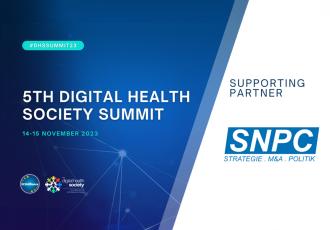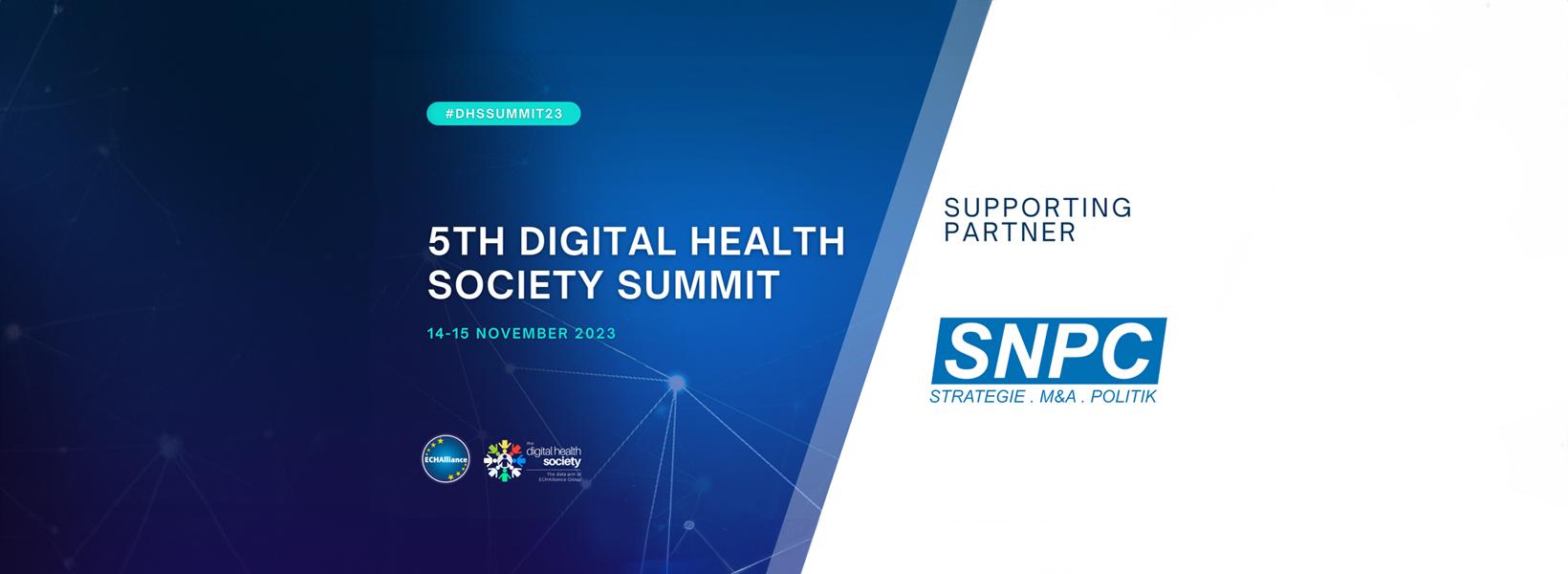Sharing is caring: A German View on Patients' Health Data


Sharing is caring: A German View on Patients' Health Data
What is the status of digitalization in the German healthcare system? What role do we play in the European Health Data Space? And: What is necessary to make us fit for the future? Questions like these were discussed at the 2023 international Digital Health Society Summit. With participants from 95 countries, the two-day virtual summit presented innovations, research and EU-funded projects, current developments and issues relating to eHealth.
As part of the summit, SNPC invited three experts to the symposium "Sharing Is Caring: A German View on Patients' Health Data”, hosted by Christina Claussen, Senior Director Patient Advocacy at Pfizer Germany. What are the opportunities and challenges of sharing health data from a patient perspective, especially in light of the EU plans for the European Health Data Space (EHDS)?
The panel had two key takeaways:
- Interoperability of health data is crucial to achieve medical progress for patients and caregivers.
- From the patients’ point of view, it is important that they have control over their personal health data and can participate in the decision-making both on national and international level.
“A data-driven environment”
The keynote speech was given by Prof. Sylvia Thun, who spoke about the creation of a German Health Data Space. Prof. Thun works on exchanging data worldwide to improve healthcare and believes that data that can e.g. help to detect rare diseases earlier should be a common good, provided it is pseudonymized or anonymized. The prerequisite for this is trust, and this means that citizens must have a say in the development of digital strategies and processes. “We are working towards a data-driven environment”, she said, which is unfortunately currently still lacking in many areas of the German health care system.
Data used for research is anonymized
In order to meet the challenges of the future, selective medicine is necessary – and this is where AI can contribute to solutions, said Dr. Djork-Arné Clevert. As Head of Machine Learning Research at Pfizer, he deals with new methods and analysis processes for the evaluation and further development of health data on a daily basis. He warned against false hopes regarding the use of AI when creating new therapeutic possibilities: AI helps us “getting faster, but diseases we’d like to cure are more and more complicated”. However, AI creates huge possibilities when it comes to analyzing data, and that can help in finding cures. Because of an approach called “Privacy Preserving Federated Learning”, patients don’t need to be afraid of sharing their data: There is no disclosing of any personal data during any stage of the process.
“The biggest opportunity in history”
People with severe chronic or even rare diseases are usually much more open to sharing data: That’s part of the experience Bernd Rosenbichler shared. As the father of a child with a very rare disease, he highlighted the invaluable importance of international data exchange and described his dedication to taking the discussion about the exchange of data into society, politics and industry. “Data analysis and all the tools currently arising – I think they are the biggest opportunity for rare diseases in history”, he said. Therefore, part of his effort is advocating for central registers, global networks and standardized screening processes.
For more information, please visit: https://echalliance.com/events-health-connector/flagship-events/5th-digital-health-society-summit/